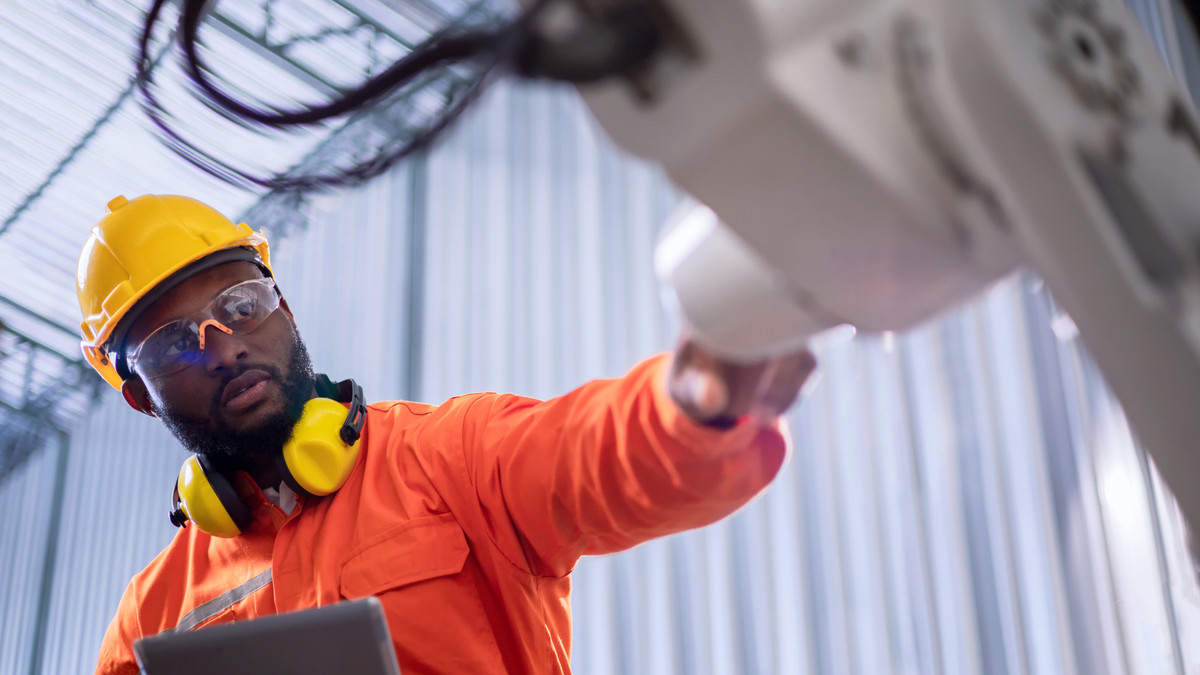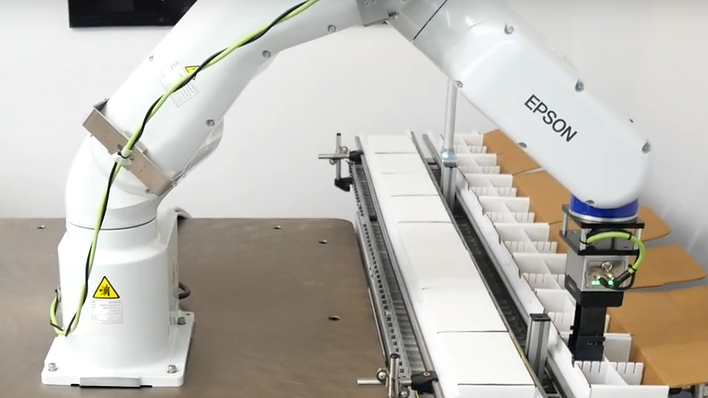Manufacturing and robotics are a natural partnership. Robots play a vital role in the manufacturing setting today. Mechanized manufacturing solutions should be a major component of any operation for maximum efficiency and safety.
Manufacturing robots can mechanize repetitive processes, cut error margins to insignificant rates and allow manual operators to center on more productive sectors of the operation. Robots are deployed in manufacturing to fill several roles.
Fully mechanized manufacturing robots are often required for high-volume recurring tasks where the robot’s precision, resilience, and speed provide unmatched benefits. Other manufacturing mechanization solutions include robots used to help manual operators with complex tasks such as gripping, lifting, and transporting heavy components.
RPA (robotic process automation) in manufacturing allows businesses to be competitive worldwide, providing an effective viable option to satisfying the skills gap in sectors where it might be hard to find the appropriate human labor.
Manufacturing robots allow employees to focus on efficiency, ingenuity, and other complex tasks that eventually lay the groundwork for advancement and success. With a devoted manufacturing mechanization solution in place, you can witness improved productivity, employee safety, customer satisfaction, and an enhanced bottom line.
How are robots being used in manufacturing?
In some businesses today, you’ll find robots working alongside manual operators. For instance, Tesla’s Gigafactories are among the most sophisticated manufacturing plants ever built. Inside, robots self-steer AIVs (autonomous indoor vehicles) freely without magnets or signals guiding them, and their main function is to move products from one workstation to the next.
Robots that work alongside humans are known as cobots (collaborative robots). The term cobot was developed by lecturers at Northwestern University and represents robots collaborating with manual operators in the workplace. The ROI (return on investment) behind collaborative robots is now being realized by numerous large manufacturing companies such as Cornell Dubilier. This is a power capacitor company based in the U.S. that has introduced robots in the manufacturing process mainly to examine capacitor installation, which has boosted the speed of labeling — doubling it from 125 pieces an hour to 250 pieces an hour.
An extreme reduction of wasted time all through the supply chain implies that manual operators are freed up to focus time on tasks that need more ingenuity and thought.
Apart from the physical side of robots is the program or software that mimics intelligence. RPA is an up-and-coming technology with a budding list of use instances across a couple of industries such as financial services.
Unlike physical machines, RPA (robotic process automation) works discreetly, substituting human brains, speeding up operations, and transforming business procedures.
This tech can act as an extra employee in a variety of disciplines all through the supply chain, working back-office tasks and IT systems to execute repetitive processes quickly, including invoice processing and purchase management orders.
In one study, virtually all participants (91%) claimed that RPA could save businesses time on repetitive tasks. 84% of RPA users felt that robots can help significantly reduce costs. But, the momentum of RPA on manufacturing is slower to take up than the actual machines.
What opportunities do robots offer manufacturers?
There is a massive prospect for manufacturers to take up AI (artificial intelligence) and robotics, but there is a huge barrier to execution. This is a lack of understanding regarding efficiently incorporating these technologies into manufacturing. Arguably the global manufacturing environment is made up of conventional businesses that take up traditional methods to business as opposed to modernization.
A study recently found that there is opposition from manufacturers when it comes to taking up the newest and best technologies. However, innovation in mechanization and robotics is happening in compartments in the manufacturing industry. Manufacturers need to be braver about changing, but they must also make sure they’re cautiously approaching how they adopt RPA. This is above simply checking whether the solution is interrelated with other systems and comprises a calculated approach to encouraging staff to embrace robots more.
As the next wave of mechanization continues to bolster itself across the manufacturing sector, you will see change like never before. Not only will robots work with manual operators they will also help revolutionize the tasks and skill-sets that manual operators can take up.
Why should robots be integrated into manufacturing?
- Robots create efficiencies from raw material handling to finish product packaging.
- Robots can be configured to work 24/7, even in darkness, for nonstop production.
- Robots are very flexible and can be customized to execute even intricate tasks.
- Robotic technology allows manufacturers to stay competitive in their specific industries.
- Automation can be cost-saving for virtually all businesses, including the small ones.
Do robots eliminate manual manufacturing jobs?
No. In fact, robots help maintain manual manufacturing jobs, How do they do this?
1. When companies can’t compete, jobs are taken offshore. Manufacturing robots help create jobs by re-shoring more manufacturing tasks.
2. Manufacturing robots shield manual operators from dangerous, tedious, and mundane tasks while also introducing more desirable job roles such as equipment maintenance, engineering, programming, and even management.
3. Robots free up manual operators, allowing them to focus on other areas of the business.
4. The current labor market has very few skilled manufacturing manual operators as a result of decades of off-shoring; machines have been taking care of the shortfall.
How does integration of robots in manufacturing make companies competitive?
1. Mechanization allows local companies to compete with global companies.
2. Manufacturing robots give more throughput so companies can look for bigger jobs.
3. Robots realize ROI fast, allowing them to offset their upfront costs within two years.
4. In a world where green manufacturing has become a reality, robots help achieve this goal by saving on utilities since they don’t need climate control or lighting.
Final thought
As you can see, all manufacturers can benefit from deploying robots in their production processes. This is because robots offer not only automation but also precision and speed. So when used well, they will result in enhanced productivity levels.
This article was written by Boris Dzhingarov from Bizcommunity.com and was legally licensed through the Industry Dive Content Marketplace. Please direct all licensing questions to legal@industrydive.com.
![]()



